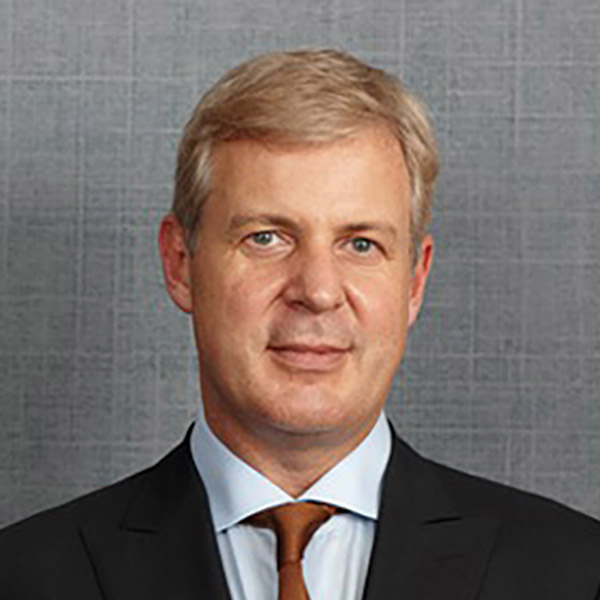G20 Executive Talk Series
September 2016
Global Trade
Authored by: John W.H. Denton
Leaving Nothing to the Imagination
When nations enthuse over a 45% tax on Chinese goods, economists roll their eyes. Adam Smith might have dismissed it as ‘one of those cases in which the imagination is baffled by the facts’.
There’s been little to unite left and right during the US Presidential campaign but trade agreements appear to be the first casualty when it comes to appeasing voters who are worried about next month’s pay-check. The fact that these same voters will struggle to afford more expensive goods can wait until after polling day. This kind of collective rear-guard action is a pattern we’ve seen time and time again when politicians know votes are at stake. And it’s not just America.
The World Bank recently noted that around the globe, discriminatory practices outpace liberalisation efforts by more than two-to-one. The G20 are the worst offenders; in the seven months to mid-May, these economies applied 145 new measures. That’s 21 a month – the highest average since the WTO began reporting. Little wonder then that growth in global trade continues to go backward.
In the five years leading up to the GFC, yearly increases in global trade stood at nearly seven per cent. It now looks likely we’ll see a fifth successive year of sub-three per cent growth. The combination of these latest trade-restrictive measures and anti-trade sentiment will continue to affect trade flows, frustrating economic growth and jobs creation.
Some G20 countries are removing restrictions. But the rate at which this is happening is a reflection of the general sentiment; of the total number of trade-restrictive measures recorded for these economies since 2008, the share of eliminations or roll-back amounts to less than a quarter. Given the effect weak global trade, low commodity prices and stilted capital flows are having on the World Bank’s growth forecasts – recently slashed by 0.5 per cent to 2.4 per cent – this is too important an issue to leave solely in the hands of the world’s politicians. The commercial world needs to step up.
![]() Some G20 countries are removing restrictions. But the rate at which this is happening is a reflection of the general sentiment; of the total number of trade-restrictive measures recorded for these economies since 2008, the share of eliminations or roll-back amounts to less than a quarter.
Some G20 countries are removing restrictions. But the rate at which this is happening is a reflection of the general sentiment; of the total number of trade-restrictive measures recorded for these economies since 2008, the share of eliminations or roll-back amounts to less than a quarter.![]()
So, how can business play an active role in combating the rise in protectionism and ensuring trade agreements that do exist actually achieve what they were designed to bring about? The International Chamber of Commerce is targeting policy development on a global scale, developing practical recommendations that will support and sustain greater volumes of trade.
This important work was evidenced recently in Geneva, with the ICC meeting with the World Trade Organisation for its inaugural summit. A key focus was simplicity and universality. Business wants to see practical sector-by-sector liberalisation efforts, in addition to the challenging work of all-in global agreements. Consistent rules and end-to-end standards would lower cost and complexity as smaller and more agile organisations feed into global supply chains, fostering growth.
In 2014, G20 leaders agreed on the ambitious goal to lift the level of G20 GDP by at least two per cent by 2018. But are politicians really looking beyond rate cuts and quantitative easing to turn things around? The Bank of England Governor Mark Carney, who’s also head of the G20 financial stability board, says implementation has lagged since that summit. The BoE now expects the level of GDP in 2018 to be more than 3% below the IMF expectations back in 2014.
If business is to enhance its influence it must accept the responsibility that comes with it. Realistic policy reform proposals require hard work, thorough analysis and actionable insight. Leaders in the commercial world must be prepared to devote time and resources to the task: identifying the trade obstructions and prioritising those we should fight to remove. The private sector must uncover the benefits of standardising processes on a global basis and work collaboratively with policy makers to make these a reality. Stubbornly slow growth will continue to push politicians towards beggar-thy-neighbour rhetoric. If imagination is sometimes baffled by the facts, perhaps it is time to make things clearer for world leaders. Let the protectionists talk loudly, business just needs to be heard.

John W.H. Denton AO was recently elected Vice-Chairman of the International Chamber of Commerce and is one of the two originating members of the B20 – the business reference group of the G20. He is a Partner and the Chief Executive Officer of Corrs Chambers Westgarth, the leading Australian independent law firm. John was appointed as an Officer of the Order of Australia (AO) last year; the highest recognition for outstanding achievement and service in Australia.